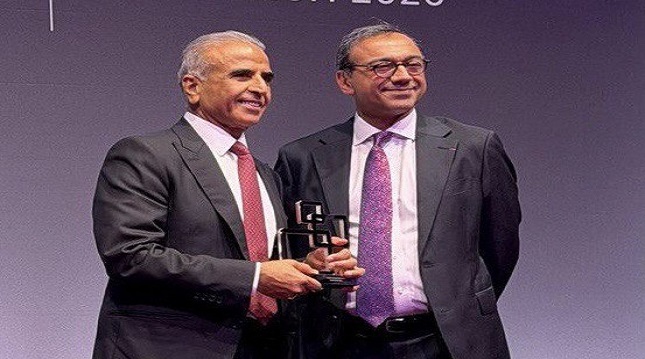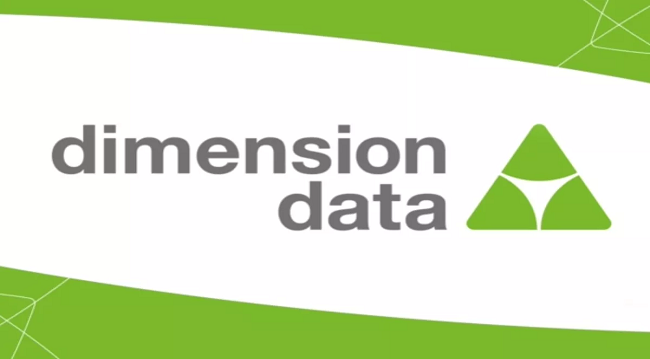Telecom
GSMA Cautions Mobile Operators on Access to the Right 5G Spectrum

The successful rollout of ultra-fast 5G services relies on timely access to the right amount and type of spectrum in the next year, warns the GSMA in an industry position released yesterday.
As the race to launch 5G services intensifies, the GSMA highlights the need for governments, regulators and the mobile industry to work together to deliver widespread coverage, and the full potential of 5G for everyone.
According to the ‘GSMA Public Policy Position on 5G Spectrum,’ governments around the world have started to auction spectrum for 5G networks, but variations in how much spectrum has been assigned, the onerous conditions imposed – and the cost of access to that spectrum – means the speed, reach and quality of 5G services could vary dramatically between countries.
Early adopter countries will be the first to realise the significant benefits of 5G – from fibre-like mobile broadband speeds and smarter cities to autonomous cars and digitised factories – and stand to reap important socio-economic benefits including GDP growth.
GSMA Intelligence forecasts that there will be 1.3 billion 5G connections by 2025, but this will be dependent on operators gaining access to sufficient spectrum.
“Operators urgently need more spectrum to deliver the endless array of services that 5G will enable – our 5G future depends heavily on the decisions governments are making in the next year as we head into WRC-19.
“Without strong government support to allocate sufficient spectrum to next generation mobile services, it will be impossible to achieve the global scale that will make 5G affordable and accessible for everyone. There is a real opportunity for innovation from 5G, but this hinges on governments focusing on making enough spectrum available, not maximising auction revenues for short term gains ,” said Brett Tarnutzer, Head of Spectrum, GSMA.
The GSMA outlines several key considerations for governments and regulators, including:
- 5G needs wider frequency bands to support higher speeds and larger amounts of traffic. Regulators that make available 80-100 MHz of spectrum per operator in prime 5G mid-bands (e.g. 3.5 GHz) and around 1 GHz per operator in vital millimeter wave bands (i.e. above 24 GHz), will best support the very fastest 5G services.
- 5G needs spectrum within three key frequency ranges to deliver widespread coverage and support all use cases:
– Sub-1GHz spectrum to extend high-speed 5G mobile broadband coverage across urban, suburban and rural areas and to help support Internet of Things (IoT) services
– Spectrum from 1-6 GHz to offer a good mix of coverage and capacity for 5G services
– Spectrum above 6 GHz for 5G services such as ultra-high-speed mobile broadband
- It is essential that governments support the 26 GHz, 40 GHz (37-43.5 GHz) and 66-71 GHz bands for mobile at WRC-19. A sufficient amount of harmonised 5G spectrum in these bands is critical to enabling the fastest 5G speeds, low-cost devices and international roaming and to minimising cross-border interference.
- Governments and regulators should avoid inflating 5G spectrum prices (e.g. setting high auction reserve prices) as they risk limiting network investment and driving up the cost of services.
- Regulators should avoid setting aside spectrum for verticals in key mobile spectrum bands; sharing approaches, such as leasing, are better options where vertical industries require access to spectrum.
“Governments and regulators have a major role to play in ensuring that consumers get the best outcome from 5G,” added Tarnutzer. “Once spectrum is allocated to mobile at WRC, licensing that spectrum at a national level, as history has shown, can take up to 10 years. Therefore, it is essential that governments take the right action now.”
Telecom
Sunil Bharti Mittal Conferred GSMA Lifetime Achievement Award for Transforming Global Telecommunications

The GSMA has conferred a rare Lifetime Achievement Award on Sunil Bharti Mittal, Founder and Chairman of Bharti Enterprises, recognising his role in reshaping the global telecommunications landscape and expanding connectivity across operators, governments, businesses and billions of consumers worldwide.

Bestowed on only a handful of industry leaders in the GSMA’s history, the honour recognises contributions that have left an enduring and defining mark on the global communications ecosystem.
The award was presented at Mobile World Congress in Barcelona in the distinguished presence of His Majesty Felipe VI, the Prime Minister of Spain, Pedro Sanchez, the President of Catalonia, Salvador Illa, and global industry leaders.
A visionary in the telecom sector, Sunil Bharti Mittal has built Bharti Airtel into one of the world’s leading mobile operators, with operations across India and Africa, ranking among the top three globally and serving over half a billion customers.
He pioneered the expansion of mobile services across emerging markets and served as Chairman of the GSMA from 2017 to 2018, where he championed policies that encouraged investment and innovation while strengthening the industry’s commitment to connecting the unconnected and advancing digital inclusion.
He was previously honoured with the GSMA Chairman’s Award in 2008 and again in 2016 for his outstanding contribution to the growth and development of the global mobile industry and was felicitated at Mobile World Congress in February 2019 in recognition of his Chairmanship.
On receiving the award, Sunil Bharti Mittal said, “I am deeply honoured to receive this recognition and sincerely thank the GSMA for this award. I accept it not only as a personal milestone, but as a tribute to India’s telecom journey, the collective spirit of Bharti, and the rise of Indian telecom companies on the global stage.
Equally the award reflects the progress of an industry that has connected billions and belongs to the customers we serve, the teams who built our institutions, and the partners who believe in the transformative power of connectivity.
Telecommunication is a force that expands opportunity, places essential services in the palm of every individual and unlocks human potential. Helping shape its evolution into a powerful accelerator of modern progress has been a privileged responsibility. As innovation accelerates, we will continue to work with our partners & stakeholders to ensure that growth advances equity and creates lasting opportunity for generations to come.”
The Lifetime Achievement Award is a rare honour, bestowed only on select individuals whose leadership and innovation have left an enduring mark on the industry.
Telecom
Why Digital Trust Matters: Secure, Responsible AI for African SMEs?

By Kehinde Ogundare, Country Head, Zoho Nigeria
For years, security for SMEs across sub-Saharan Africa meant metal grilles and alarm systems. Today, the most significant risks are invisible and growing faster than most businesses realise.

Kehinde Ogundare
Artificial Intelligence has quietly embedded itself into everyday operations. The chatbot responding to customers at midnight, the system forecasting inventory requirements, and the software identifying unusual transactions are no longer experimental technologies. They are becoming standard features of modern business tools.
Last month’s observance of Safer Internet Day on February 10, themed ‘Smart tech, safe choices’, marked a pivotal moment. As AI adoption accelerates, the conversation must shift from whether businesses should use AI to how they deploy it responsibly. For SMEs across Africa, digital trust is no longer a technical consideration. It is a strategic business imperative.
The evolving threat landscape
Cybersecurity threats facing sub-Saharan African SMEs have moved well beyond basic phishing emails. Globally, cybercrime costs are projected to reach $10.5 trillion this year, fuelled by generative AI and increasingly sophisticated social engineering techniques. Ransomware attacks now paralyse entire operations, while others threats quietly extract sensitive customer data over extended periods.
The regional impact is equally significant. More than 70% of South African SMEs report experiencing at least one attempted cyberattack, Nigeria faces an average of 3,759 cyberattacks per week on its businesses, Kenya recorded 2.54 billion cyber threat incidents in the first quarter of 2025 alone, whilst Africa loses approximately 10% of its GDP to cyberattacks annually.
The hidden risk of fragmentation
A common but often overlooked vulnerability lies in digital fragmentation.
In the early stages of growth, SMEs understandably prioritise affordability and agility. Over time, this can result in a patchwork of disconnected applications, each with separate logins, security standards, and privacy policies. What begins as flexibility can involve into operational complexity.
According to IBM Security’s Cost of a Data Breach Report, companies with highly fragmented security environments experienced average breach costs of $4.88 million in 2024.
Fragmented systems create blind spots, each additional data transfer between applications increases exposure. Inconsistent security protocols make governance harder to enforce. Limited visibility reduces the ability to detect anomalies early. In practical terms, complexity increases risk.
Privacy-first AI as a competitive differentiator
As AI capabilities become embedded in business software, SMEs face a choice about how they approach these powerful tools. The risks are not merely theoretical.
Consumers across Africa are becoming more aware of data rights and willing to walk away from businesses that cannot demonstrate trustworthiness. According to KPMG’s Trust in AI report, approximately 70% of adults do not trust companies to use AI responsibly, and 81% expect misuse. Meanwhile, studies also show that 71% of consumers would stop doing business with a company that mishandles information.
Trust, once lost, is difficult to rebuild. In the digital age, a single data leak can destroy a reputation that took ten years to build. When customers share their payment details or purchase history, they extend trust. How you handle that trust, particularly when AI processes their data, determines whether they return or take their business elsewhere.
Privacy-first, responsible AI design means building intelligence into business systems with data protection, transparency and ethical use embedded from the outset. It involves collecting only necessary information, storing it securely, being transparent about how AI makes decisions, and ensuring algorithms work without compromising customer privacy. For SMEs, this might mean choosing inventory software where predictive AI runs on your own data without sending it externally, or customer service platforms that analyse patterns without exposing individual records. When AI is built responsibly into unified platforms, it becomes a competitive advantage: you gain operational efficiency whilst demonstrating that customer data is protected, not exploited.
Unified platforms and operational resilience
The solution lies in rethinking digital infrastructure. Rather than accumulating disparate tools, businesses need unified platforms that integrate core functions whilst maintaining consistent security protocols.
A unified approach means choosing cloud-based platforms where functions share common security standards and data flows seamlessly. For a manufacturing SME, this means inventory management, order processing and financial reporting operate within a single security framework.
When everything operates cohesively, security gaps diminish and the attack surface shrinks. And the benefits extend beyond risk reduction: employees spend less time on administrative friction, customer data stays consistent, and platforms enable secure collaboration without traditional infrastructure costs.
Safer Internet Day reminds us that the digital world requires active stewardship. For SMEs across the African continent who are navigating complex threats whilst harnessing AI’s potential, digital trust is foundational to sustainable growth. Security, privacy and responsible AI are essential characteristics of any technology infrastructure worth building upon. Businesses that embrace unified, privacy-first platforms will be more resilient against cyber threats and better positioned to earn and maintain trust. In a market where trust is currency, that advantage is everything.
Telecom
Dimension Data Nigeria Secures ₦20Billion Funding to Strengthen Digital Infrastructure

Dimension Data Nigeria has raised ₦20 billion (approximately $13.7 million) through a bond programme under Dimension Data SPV Funding Plc, following approval from the Securities and Exchange Commission of Nigeria.

This initiative aims to strengthen Nigeria’s digital infrastructure by addressing gaps in fibre coverage, limited enterprise connectivity, and increasing demand for cloud, fintech, digital services, and Artificial Intelligence.
The integrated IT solutions provider stated that the capital will be used to fund long-term investments in expanding network capacity, enhancing resilience, and supporting carrier-grade and enterprise services as data consumption continues to accelerate nationwide.
Speaking at a documentation and regulatory clearances event in Lagos, managing director, Gbenga Olabiyi, said sustained infrastructure investment is critical to maintaining competitiveness and enabling future growth.
He noted that strategic upgrades would help future-proof operations, reduce service disruptions, and allow the company to scale efficiently as business and consumer demand for cloud, fintech, and other digital services intensifies.
The bond programme is backed by private equity firm Mbavaa Partners Limited, whose managing partner, Shatse Kakwagh, described the transaction as a milestone that unlocks long-term capital for expansion.
He highlighted that strong ratings and an oversubscribed first issuance show investor confidence in Dimension Data’s execution and growth potential.
The fundraising comes as Nigeria confronts persistent infrastructure gaps, including limited metro and last-mile fibre coverage and rising enterprise connectivity needs.
Government intends to deploy 90,000 kilometres of fibre nationwide under Project Bridge aim to expand internet penetration and lower access costs.

 E-Financial1 day ago
E-Financial1 day agoMutual Benefits Assurance Reaffirms Full Regulatory Compliance, Enhanced Governance

 E-Financial1 day ago
E-Financial1 day agoIran-Israel-US Conflict and CBN’s FX Gains: A Stress Test for Nigeria’s Monetary Stability

 General News1 day ago
General News1 day agoSERAP Asks FCCPC to Investigate Google, Meta, Others over Alleged Rights Abuses

 General News1 day ago
General News1 day agoJAMB Uncovers AI-Driven Fraud Targeting UTME Candidates, Warns Parents

 News1 day ago
News1 day agoFlashChange CEO, Bidemi Oke, Urges Startups to Build Strong Governance Structures Early

 News1 day ago
News1 day agoTeamApt, Awabah Partner to Boost Pension Drive for Nigerians

 General News1 day ago
General News1 day agoCapelli Institute Commits to Advancing Trichology in Nigeria

 E-Financial1 day ago
E-Financial1 day agoReps Mull Commission to Regulate Fintech Operations


























